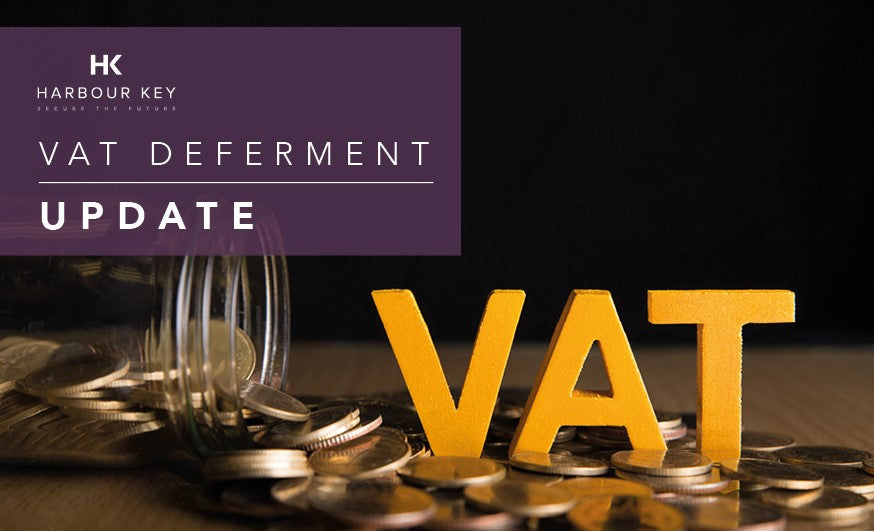
This update is written and posted on 1 July 2020 and is likely to quickly become out of date. We will endeavour to update information as it becomes available.
Previous updates and other useful information can be found at our WEBSITE.
With a number of changes/new announcements by Government to the Covid19 pandemic support for business, we thought it appropriate to send an update in advance of our July monthly newsletter.
VAT Deferment
The three-month VAT payments deferment ends on 30 June 2020. There appears to be no sign that the deferment period will be extended and HMRC have updated their guidance to emphasise that the deferment period is ending. The first payments falling outside the deferral arrangements will be those due on 7 July relating to VAT returns for the period to 31 May.
Businesses which took-up the VAT coronavirus crisis easement should:
- Reinstate bank direct debits in sufficient time for HMRC to take payments due from 1 July onwards (to be effective, these need to be setup three working days before a VAT return is filed);
- UK VAT returns must be submitted as normal (which should have been the case, even if payment was deferred);
- Make direct bank payments as normal if direct debits are not used;
- If you have postponed any VAT using the deferral, plans need to be made for settlement by 31 March 2021;
- If you are still suffering financial difficulties and wish to seek a deferment or phased payment plan, then you will need to speak to HM Customs and get a time to pay arrangement agreed.
HMRC has confirmed to the ICAEW that it will not collect the outstanding balance of deferred VAT when the direct debit mandate is reinstated. HMRC has made the necessary system changes to avoid this happening for businesses in Making Tax Digital (MTD) for VAT.
Further guidance is expected from HMRC in respect of the deferred VAT to be collected by 31 March 2021.

Job Retention Scheme #2
As we have reported previously, the extension to the Job Retention Scheme goes live this week (1 July). The guidance has now been published with examples via updates to existing guides. Although announced as an extension to the current scheme, the second version of the scheme is very different and is more complicated.
The link will take you to our updated guide to the new scheme with seven steps to getting it right and links to the five areas of HMRC guidance.
Link to Job Retention Scheme #2 – Goes Live article.
The Sustainable Innovation Fund
A new £200m fund to drive innovation and bolster the post-pandemic economy will be open to companies across all parts of the UK that need urgent financial support to keep their projects and ideas alive. Cash could be used for development of new technologies to make homes more energy efficient or to fight infections and diseases. The first stage of the fund opened yesterday and will close on 29th July - see HERE
Business Risk Assessment
A new tool is available to help businesses in England identify whether they can reopen safely. The tool encourages businesses to carry out a risk assessment and helps to identify workplace adjustments. The tool can be found HERE
Self Employed Income Support Scheme (“SEISS”)
A reminder for those self-employed eligible for SEISS, you need to claim the first grant on or before 13 July 2020, before the scheme closes. The SEISS has been extended. A second and final grant will be available when the scheme opens again in August 2020.
Future Fund extension
The Treasury plans a Future Fund expansion after demand surged. The Government’s £250m Future Fund for early stage businesses, announced in mid-April, and went live in mid-May has approved 53 loans to technology start-ups worth £56m in its first fortnight. This is despite 533 businesses submitting applications for Future Fund backing, with £515m of funding applied for on its first day – nearly exhausting its paper capacity on day one.
New Corporate Insolvency Rules become law
Introduces new corporate restructuring tools and temporary easements to give distressed businesses the breathing space they need to get advice and seek a rescue. Key parts:
- Introduction of the new role of a Monitor to oversee the corporate moratorium it introduces – an extendable 20 working day period giving businesses protection from creditor action while they seek professional restructuring advice;
- Extending the suspension of termination clauses when a company enters into an insolvency procedure and introduces a new restructuring plan that has the ability to bind creditors to it;
- Providing temporary relief until 30 September 2020 from being subject to a winding up petition and from action under the “wrongful trading” provisions where a business can demonstrate its difficulties arise from trading conditions arising from the COVID-19 pandemic;
- Changes to company filing and meeting requirements to relieve the burden on businesses during the pandemic and allow them to focus all their efforts on continuing to operate.
EMI Working time commitment
The “working time requirement” in the EMI legislation broadly provides that an employee can only be granted an EMI option and benefit from the associated tax advantages if they work for the relevant company for an average of at least 25 hours per week or, if less, 75% of their overall “working time”. If the employee does not meet this requirement throughout the time they hold the EMI option, the option will be subject to a “disqualifying event” and will therefore lose the beneficial EMI tax treatment. To date, there had been no details of how furlough impacted this EMI condition. However, a new clause in the Finance Bill 2020 inserts a new provision to provide that there will be no “disqualifying event” resulting from an EMI option holder not being required to work for reasons connected with coronavirus disease, which includes circumstances where the individual has had to take leave, is furloughed or reduces their working hours. This clause will have effect from 19 March 2020 to 5 April 2021.
As ever, matters are still developing and we will endeavour to keep you up to date, flag to you opportunities and signpost to the key details as best as we can via our updates. A summary of the Government’s support schemes can be found at our website, including a list of non-Government funding opportunities, which we update regularly and can be found HERE.
We know that this is a very difficult time for all businesses and some difficult decisions are having to be made. We have spoken to hopefully all of you and if not, we would like you to know that we are here ready to help if you need us to provide advice, deal with queries, or just be a business sounding board.



